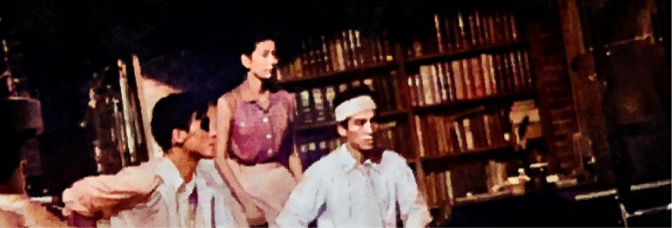Godzilla is a peculiar picture. It’s intensely serious, with director Honda never letting the viewer get a moment’s relief. This approach is all throughout the film, which opens with a documentary feel. Honda and co-screenwriter Murata Takeo set up their main characters quickly and without a lot of fanfare–Takarada Akira and Kôchi Momoko’s first scene sets up their relationship before sending them away–she actually just disappears for a while, while he becomes a background player during the first act.
Their romance is the best character work in the film, with the possible exception of Suzuki Toyoaki’s grieving orphan. Takarada and Kôchi’s romance is never quite star-crossed but it’s always difficult. They’re both excellent. All of the film’s emotions play out through Kôchi; it’s like the film has greater need of her than to just have a difficult romance.
Honda moves Godzilla through a few phases–mystery, exploration, devastation–always ratcheting the tension a little tighter. The creature’s destruction of Tokyo is exhausting and relentless. The film implies subtext to those scenes–the creature discovering man’s world–but Honda doesn’t explore them. He presents them matter of fact, the documentary style returning.
The last act is where the film stumbles; Hirata Akihiko gives a histrionic performance. Some of it is the writing, most of it is Hirata. The film already has problems with Shimura Takashi, in a similarly poorly written role. There’s way too much strained symbolism in the finish.
The music, photography and editing are all exceptional.
The film is thoughtful, intricate and affecting.

Leave a Reply